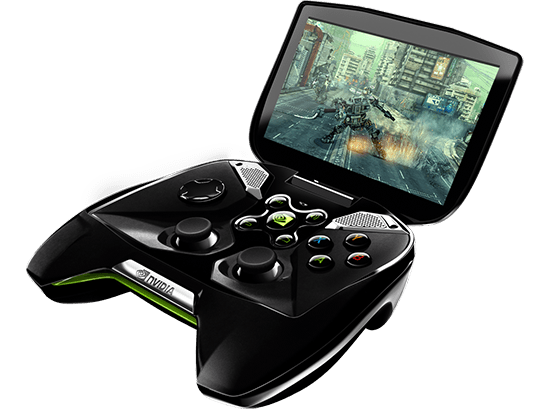Way back at CES in January, I was super excited by one device over all others: the Nvidia Shield. The Shield is a gaming-centric Android device, not a smartphone or a tablet, but essentially a handheld console. The Shield is formed of a 5″ touchscreen that’s mounted on top of proper Xbox-360-style controller.
Unlike the previous attempts at gaming platforms running a mobile operating system – like the Nokia N Gage or Sony Xperia Play – the Shield actually has a wide, viable ecosystem of games to play. There are Shield-optimised titles in a special app store, but there are also a massive number of games on Google Play. The Shield even works with PC games, which can be streamed from gaming PCs running Nvidia graphics cards.
Initial reviews have been quite positive, particularly in terms of the device’s hardware. The Tegra 4 chipset that lies at the heart of each Shield is the most powerful mobile processor yet, even eclipsing Qualcomm’s Snapdragon 800 and Samsung’s Exynos Octa. Combined with 2 GB of RAM, 16 GB of internal storage and a very hefty battery, this is one of the best performing Android devices ever.
Of course, all of this would be for naught if the controller that’s so integral to the Shield experience was second rate. That’s what I found with the Ouya, which felt like the misshapen wonky controller perenially given to ‘Player 2’. Thankfully, Shield delivers where it counts, with a controller that feels as tactile and precise as that of the Xbox 360 and compact enough to work as a mobile platform.
Overall, the build quality of the device belies Nvidia’s inexperience in producing standalone devices – the Shield really impresses here. The screen’s hinge seems solid enough, the magnetic ‘shield’ on the rear of the display jumps into place, and there isn’t much give anywhere on the Shield.
I reckon that if you’re a gamer, then the Shield makes a lot of sense. If you’ve already got an interest in PC gaming and / or have a bunch of Android games, then Shield becomes a pretty compelling proposition. At $299 it’s much pricier than, say, a Bluetooth gaming controller for your phone, but it’s also a much more integrated experience.
If and when the device launches in the UK I’m pretty sure I’ll be lining up to get one… as long as it hits before the PlayStation 4 and Xbox One in November!
